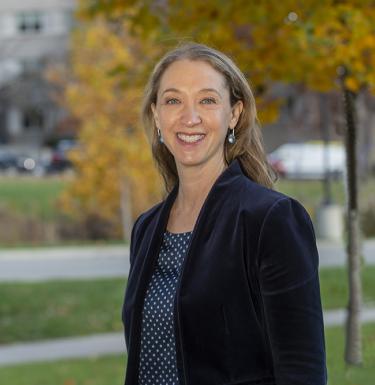
Pitt Public Health’s 2024 graduation ceremony celebrates both undergraduate and graduate students
In an historic first, the 2024 Pitt Public Health graduation ceremony included nine graduates from the school’s Bachelor of Science in Public Health (BSPH) degree program, along with more than 240 master’s and doctoral-level graduates.
CDC grant funds vaccine-support tool
A $1 million grant from the U.S. Centers for Disease Control and Prevention (CDC) will fund a decision-support toolkit being developed by the Public Health Dynamics Laboratory (PHDL) to increase vaccine acceptance and vaccination rates.
Pitt is launching an Office of Sustainability in the Health Sciences
“The new Office of Sustainability will accelerate the transdisciplinary opportunities across the health sciences,” said Dean Maureen Lichtveld.
Africa intensifies battle against mpox as ‘alarming’ outbreaks continue
The global outbreak helped bring new attention to mpox and led to a boom in research, Jean Nachega associate professor of Infectious Diseases and Microbiology and Epidemiology says, but almost all of it came in Europe and North America.
ART Heals Pittsburgh showcases the role of community art in the wake of the COVID-19 pandemic
Through the collaboration of professors Sara Baumann and Jessica Burke, ART Heals Pittsburgh showcases 27 artists from the greater Pittsburgh region.
Pitt researchers’ study raises concerns about risks to prescription drug supply
Katherine Callaway Kim, a Department of Health Policy and Management doctoral student, was first author of a cross-sectional study, in which a total of 571 drugs exposed to 731 supply chain issue reports were matched to 7,296 comparison medications.
Comprehensive sexuality education benefits youths, schools and communities
The team led by Dr. Sara Baumann, assistant professor in the Department of Behavioral and Community Health Sciences, examined the effects of a unique program working with school communities in rural Madagascar.
5 Pitt students earned Boren Awards to study language abroad
Ang Le, a master’s student and FLAS (Foreign Language and Area Studies) recipient for Haitian Creole, from the Department of Environmental and Occupational Health, has been awarded a Boren Fellowship to study Vietnamese in Vietnam.
Biomarkers may explain Caribbean women’s greater risk for Alzheimer’s disease
A study by led Iva Miljkovic, MD, PhD, associate professor of epidemiology, was published in the April 12 issue of Alzheimer's & Dementia: Translational Research & Clinical Interventions, a journal of the Alzheimer’s Association.
Michael Deem earned a fellowship to develop a new undergraduate course
Michael Deem, associate professor of human genetics, was recently awarded a Signature Course Fellowship by the University of Notre Dame Institute for Advanced Studies.
Greater numbers of younger people got permanent contraception after Dobbs decision, study finds
“Findings from this research highlight the indirect effects of Dobbs on the reproductive autonomy of young people,” said lead study author Dr. Jackie Ellison, assistant professor of health policy and management.
‘Nobody saw this coming’; California dairies scramble to guard herds against bird flu
“The concerning trend of multiple states reporting cattle infections raises the likelihood of continued human exposure,” said Suresh Kuchipudi, professor and chair of infectious diseases and microbiology.
What the Ohio train derailment teaches us about poisoning public trust
One problem was that the announcement lacked nuance and transparency, according to James Fabisiak, associate professor of environmental and occupational health.
'It's the greatest living experiment': Pitt Men's Study marks 40 years of AIDS research
Forty years later, the Pitt Men’s Study is one of the longest-running studies on HIV and AIDS in the country.
